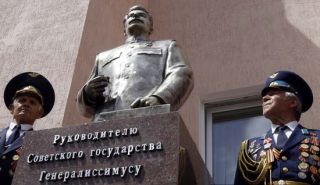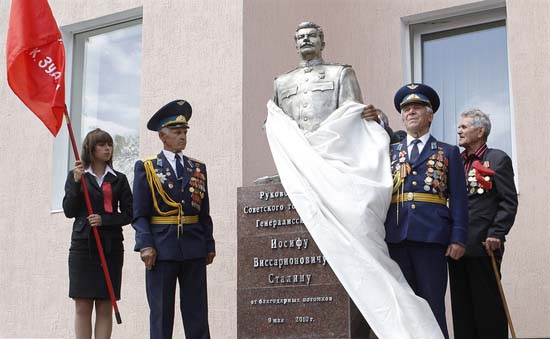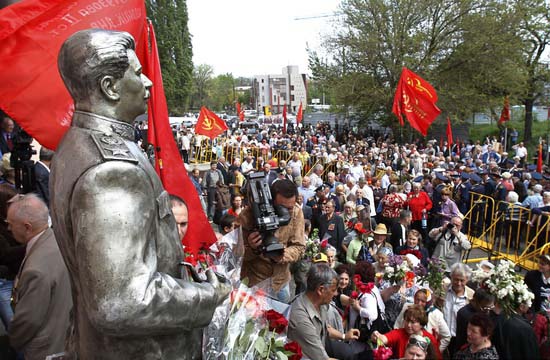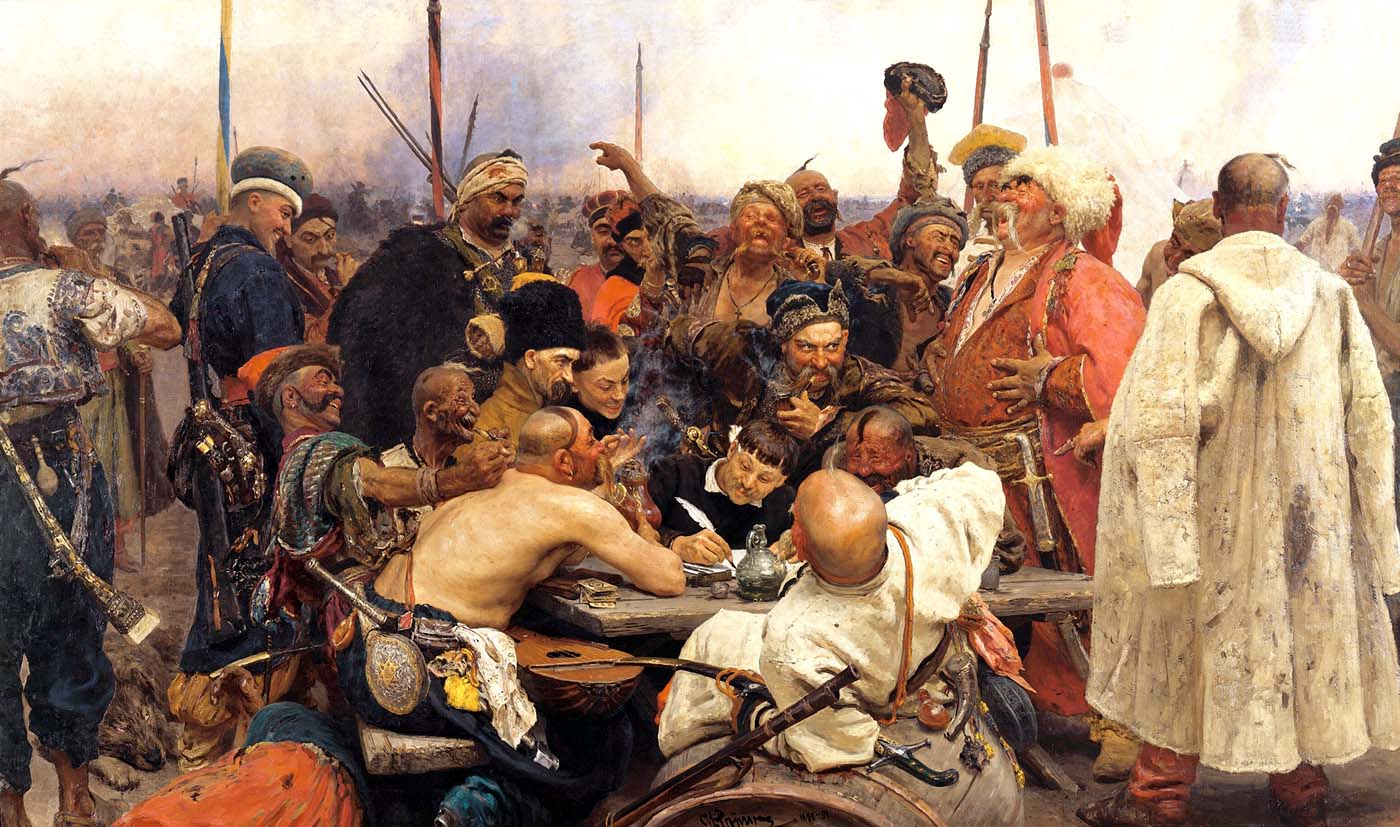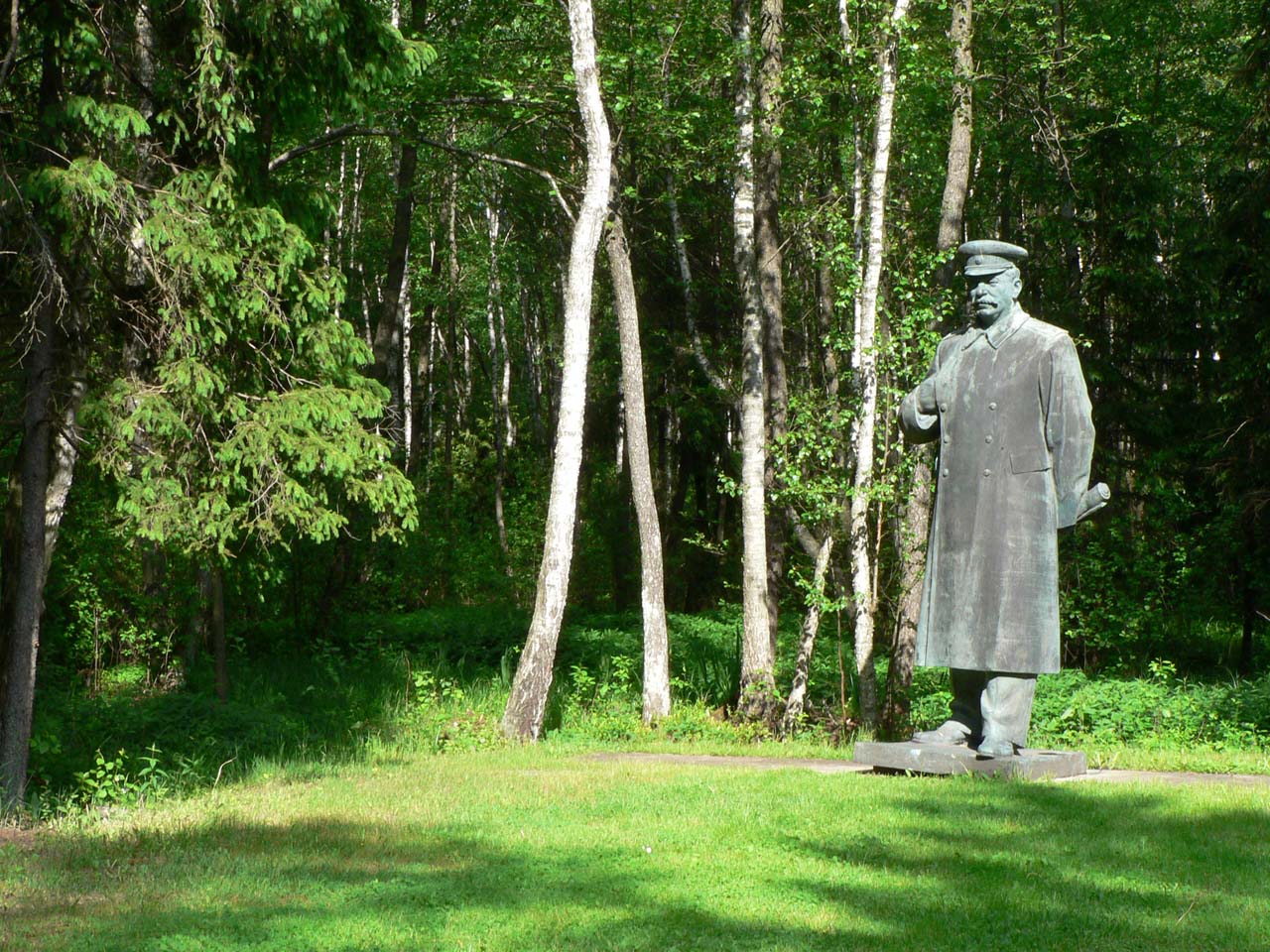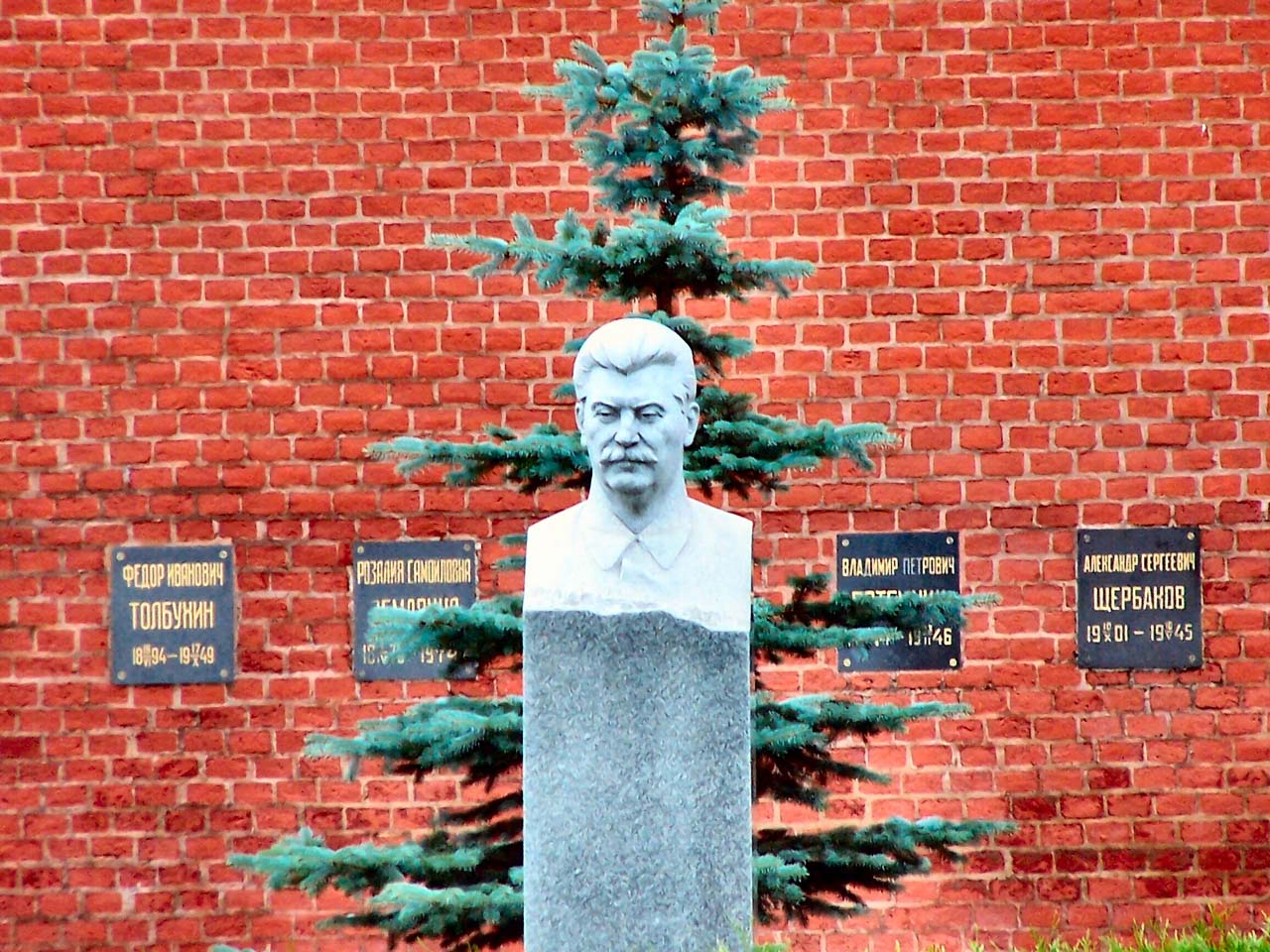Already on 5 May 2010, a memorial for Stalin was unveiled in the south-Ukrainian city of Zaporizhia. While it is of no special artistic importance (it could have been put on this way some 60 years ago; maybe there was even an old bust to be used for a mould?), it is even more so politically.

Some 1,000 people attended the event under the sound of the Soviet Hymn, including veterans of the Second World War. The memorial has been funded by donations and has been (hardly surprising) set up in front of the building of the regional committee of the Communist Party of Ukraine.
The city of today some 800.000 people is regarded as cradle for the Zaporozhian Cossacks. This gives us the opportunity to throw a glance on the much more interesting painting “The Reply of the Zaporozhian Cossacks to the Sultan of Turkey” by Ilya Repin (1844–1930) that he made 1880-91.
But back to the statue: it shows the Sowjet dictator (1878-1953) in a naturalistic way, wearing his military uniform, including the star of the “Hero of the Sowjet Union”. However, before the unveiling, a court prohibited all mass rallys around the building, not just for the rightwing All-Ukrainian Union “Swoboda”, but also for the Communist Party of Ukraine; therefore, the event was officially called “a meeting with Olexij Baburin, Communist Party Member of Parliament, with his voters”. Photos of the unveiling are on the website of the news agency UNIAN, further videos can be seen here.
Much more likeable seems to be the approach of the Ukrainian judge Victor Poprevich, who put up two busts of Stalin and Lenin in the “Blind Alley of Communism”.
Since 2005 and especially in Russia and the Ukraine, a more positive view of Stalin is taking place, from the ruthless dictator to the savior of the Sowiet Union from Fascism. The mayor of Moscow, Yury Mikhaylovich Luzhkov, is one of the more prominent members of that view. In 2008, the Russian state TV channel Rossiya 1 asked for the “most important person of Russian history”: Stalin could reach the third place, quite close behind Alexander Nevski and Pyotr Stolypin. The German TV channel ZDF was more clever (and even more political correct) when it asked in 2003 (following the British BBC with its “100 Greatest Britons”) for the “Greatest Germans”: Hitler and his henchmen were not included in the assessment.
